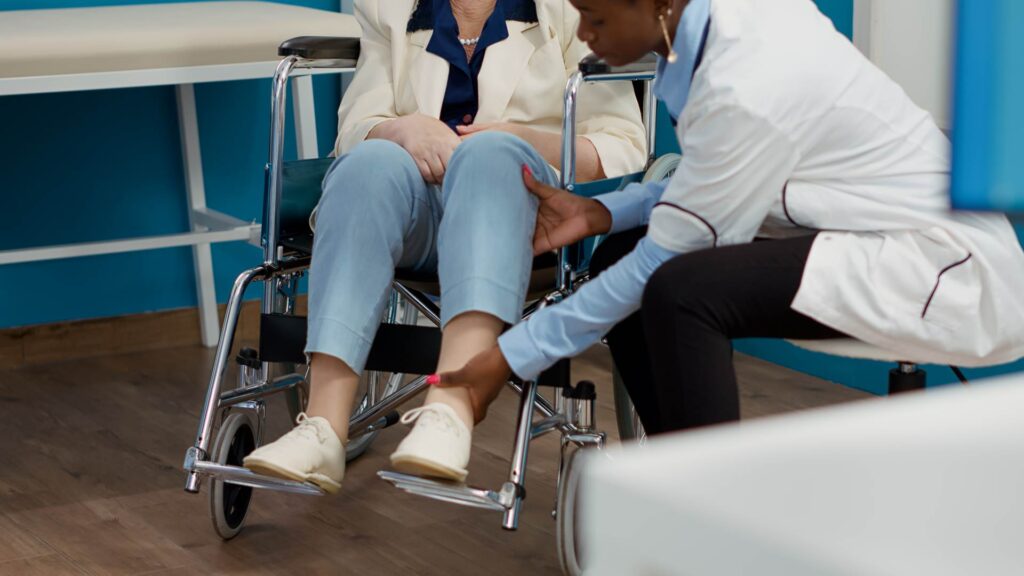If you’ve been injured in an accident in Georgia, you may be entitled to compensation for your injuries. However, if you have a pre-existing condition, you may be wondering how this will affect your personal injury claim after a car accident. In this blog post, we’ll explore the impact of pre-existing conditions on personal injury claims in Georgia, and provide guidance on how to navigate this complex issue.
What is a Pre-Existing Condition?
A pre-existing condition is a medical condition that you had before the accident or injury occurred. This can include conditions such as:
- Chronic back pain
- Arthritis
- Herniated discs
- Prior injuries or surgeries
- Medical conditions such as diabetes or heart disease
How Do Pre-Existing Conditions Affect Personal Injury Claims?
In Georgia, the presence of a pre-existing condition can affect your personal injury claim in several ways:
- Causation: The defendant may argue that your pre-existing condition, rather than the accident, caused your injuries. You’ll need to prove that the accident exacerbated or worsened your pre-existing condition.
- Damages: The defendant may argue that you’re not entitled to damages for your pre-existing condition, as it was already present before the accident. You’ll need to prove that the accident caused new or additional injuries.
- Mitigation of Damages: The defendant may argue that you failed to mitigate your damages by not seeking medical treatment for your pre-existing condition before the accident.
Georgia Law on Pre-Existing Conditions
In Georgia, the law is clear: a pre-existing condition does not bar recovery for injuries sustained in an accident. (O.C.G.A. § 51-12-2). However, the law also requires that you prove that the accident caused or exacerbated your injuries.

Proving Causation After A Car Accident
To prove causation, you’ll need to show that the accident caused or worsened your pre-existing condition. This can be done through:
- Medical testimony: Your doctor or medical expert can testify that the accident caused or exacerbated your injuries.
- Medical records: Your medical records can show that your condition worsened after the accident.
- Imaging studies: X-rays, MRIs, or other imaging studies can show the extent of your injuries before and after the accident.
Proving Damages From A Car Wreck
To prove damages, you’ll need to show that the accident caused new or additional injuries. This can be done through:
- Medical testimony: Your doctor or medical expert can testify that the accident caused new or additional injuries.
- Medical records: Your medical records can show the extent of your injuries and treatment after the accident.
- Economic damages: You can claim economic damages for medical expenses, lost wages, and other expenses related to your injuries.
Mitigation of Damages
To mitigate damages, you’ll need to show that you took reasonable care to prevent further injury or harm. This can be done through:
- Seeking medical treatment: You should seek medical treatment for your pre-existing condition before and after the accident.
- Following medical advice: You should follow your doctor’s advice and treatment plan.
- Avoiding activities that exacerbate your condition: You should avoid activities that could worsen your condition.
Examples of Pre-Existing Conditions in Personal Injury Claims
- Chronic back pain: You had chronic back pain before the accident, but the accident caused a herniated disc that required surgery.
- Arthritis: You had arthritis before the accident, but the accident caused a broken bone that required surgery.
- Prior injuries: You had a prior injury before the accident, but the accident caused new or additional injuries.
Conclusion
Pre-existing conditions can impact personal injury claims in Georgia, but they don’t bar recovery. By understanding the law and how to prove causation, damages, and mitigation of damages, you can navigate this complex issue and get the compensation you deserve. If you’ve been injured in an accident and have a pre-existing condition, consult with an experienced personal injury attorney to discuss your options.
Additional Resources
- Georgia Code: O.C.G.A. § 51-12-2
- Georgia Courts: Georgia Supreme Court and Court of Appeals decisions on pre-existing conditions
- Medical Resources: American Medical Association, American Academy of Orthopedic Surgeons, and other medical organizations
Note: This blog post is for informational purposes only and should not be considered legal advice. Consult with an experienced personal injury attorney at Rebecca Kay Sapp Law Firm for specific guidance on your case.

